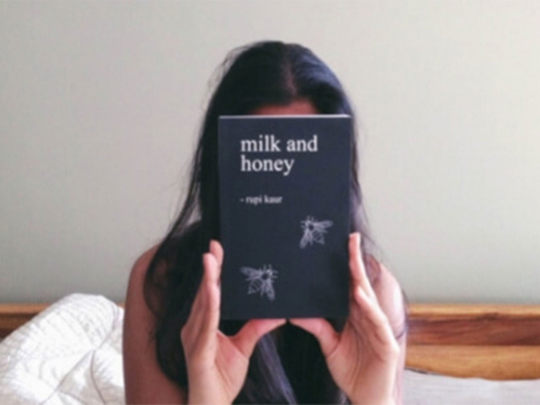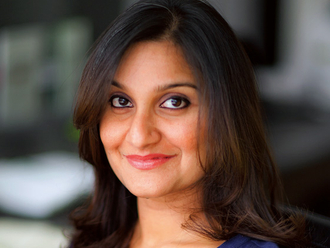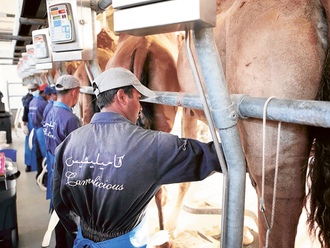
Forget page-turners and celebrity memoirs, Brits have rekindled their love of verse.
More than a million poetry books were sold in the last year, the highest number on record, as the popularity of social media sensations such as Rupi Kaur continues to reinvigorate the art form. Sales are up 13%, to GBP10.5m, according to figures from Nielsen Book Research.
Kaur, whose latest book hit shelves this week, is at the heart of the boom. Her debut anthology, Milk and Honey, broke all records when it was released in 2016, and this year it has sold more copies than the rest of the top 10 poets combined. Kaur is even outselling heavyweight fiction writers such as Ian McEwan and Anne Tyler.
"I'm kind of a nerd," says Kaur. "I've always loved English class and I love reading books, but, the truth is I never even understood the poetry we were given at school."
Kaur, 25, moved from Punjab to Toronto when she was four, and grew up with English as a second language. "I was always a visual artist first," she says.
When it came to writing poetry, she looked at ways to form simple, easy-to-understand verses, often so short you can read them in one breath. She's known for tackling hard subjects such as alcoholism head-on, but a lot of her work deals with love and relationships.
"I don't want someone to read my poetry and think: what does that mean? So every time I'm writing, I'm thinking: OK, what word can I take out? How do I make this more direct? What's too technical?"
The quick-fire click-and-swipe culture of social media - Instagram especially - has been key to Kaur's meteoric rise. "I've heard someone describe it as fidget spinner poetry," says Chris McCabe, who runs the poetry library at London's Southbank Centre. "But it's bringing lots of people to poetry who might otherwise never have engaged with it. And that's a fantastic thing."
Footfall at the library has increased by more than 20% over the past year, he says, thanks in part to Kaur. The library even has a specific genre titled Instagram poetry, because so many people had been asking for it.
"Thanks to social media we don't rely on a critical interpretation of poetry to tell us what's good any more," McCabe says. "It's the end of centuries of white-male dominated verse - and that's a real breakthrough."
Melissa Lee-Houghton , winner of this year's Somerset Maugham award for her collection Sunshine, agrees there has been a power shift in contemporary poetry, and that young rebel poets - breaking the mould of traditional, more elitist verse - are behind it.
"Poetry now appeals to a very wide audience of young people who didn't think poetry was cool before. Now it's the coolest thing," she says.
Any night of the week in London and in cities across Britain you can go to spoken word open mic events, she says. "Anybody can go up and read something. It's become more of a community thing."
Lee-Houghton, whose latest work is titled Cumshot in D Minor, says she is seeing more and more poetry converts at her own live readings. "They approach me afterwards and say: 'I don't normally read poetry, but that's really affected me. I'm going to go and buy some,'" she says.
Luke Wright, a spoken word poet who has a tour lined up for his forthcoming book Frankie Vah (An Epic Poem), compares the boom in poetry to the way hip-hop went mainstream in the late 1990s. "Thanks to Eminem, suddenly a whole new bunch of people were listening to it," he says.
YouTube and Instagram have been instrumental for the emerging underground poetry scene, he says. "You can take a punt on things with a video, in a way you don't when you go to a gig or buy a book."
This week Wright posted a poem online about Boris Johnson's "dead bodies" comments at the Conservative party conference. Within hours it went viral. "Out of all the art forms, I think only spoken word poetry can respond that quickly," he says.
Wright and Kaur are worlds apart in style and delivery, but both are tapping into a growing appetite for verse that is at once simple, current and hard-hitting.
Kaur suggests her newfound success has come at a price. Speaking before her latest book came out, she admitted to feeling "very, very unhappy" sometimes - above all because of the weight of expectation for the second book.
"It feels like you're on a train and it won't stop and everyone's saying: oh my God, make sure you take a minute to take it all in. But I feel like I don't even have a minute."










